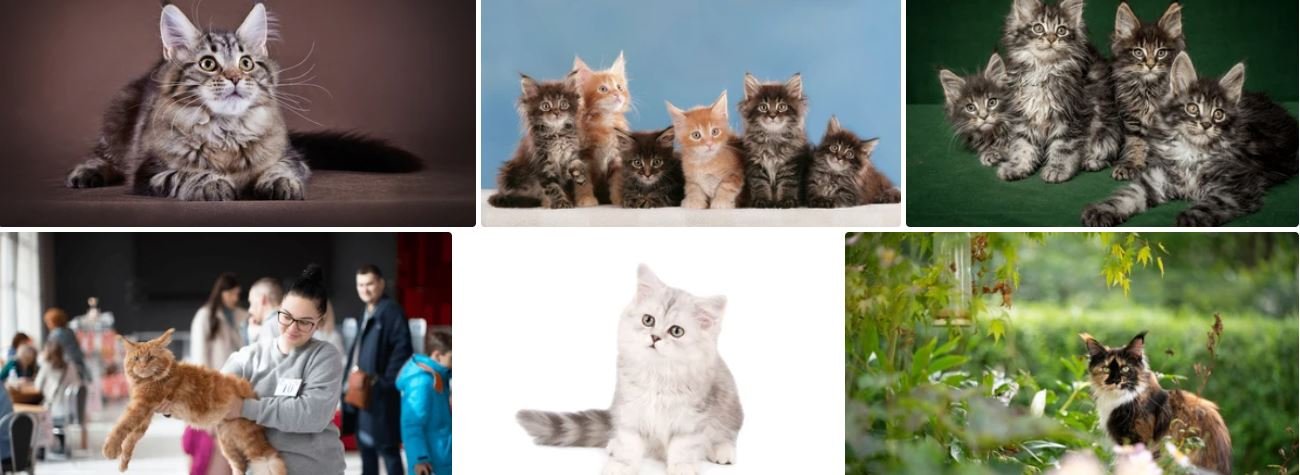
Maine Coon cats are among the most adored and well-known cat breeds globally. Renowned for their large size, striking looks, and gentle nature, these “gentle giants” have won the hearts of cat enthusiasts everywhere. With their long, bushy tails, tufted ears, and playful yet independent nature, Maine Coons are truly unique.
The aim of this article is to provide 10 facts about Maine Coon cats that highlight what makes them so special. Whether you’re a long-time fan or new to the breed, these insights will give you a deeper appreciation for these incredible cats.
Read to know the wonders of Maine Coon cats and why they might just be the perfect pet for you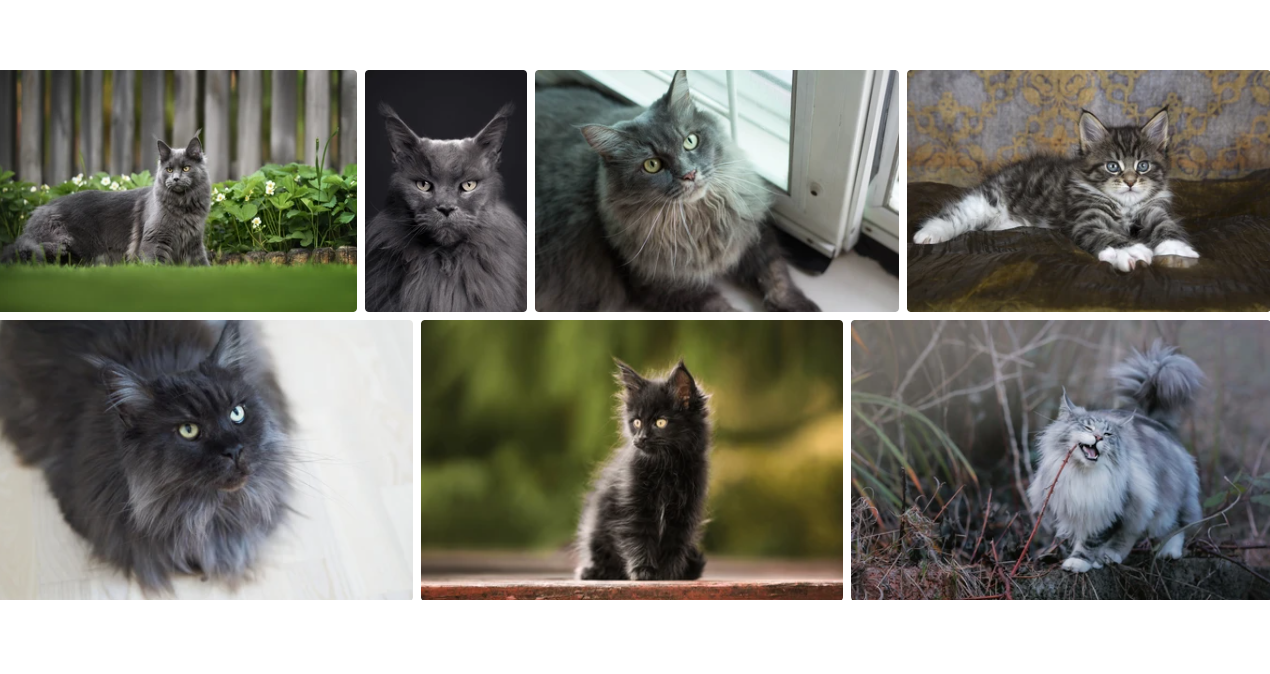
The Maine Coon, cats are one of America’s oldest and most legendary breeds, with a history that’s just as captivating as the cats themselves. Their origins are shrouded in mystery, with numerous myths and legends attempting to explain where these magnificent cats came from.
One of the most popular myths surrounding Maine Coon cats is that they are the result of a cross between domestic cats and raccoons, a belief likely inspired by their bushy tails and tabby markings. Another legend suggests that Maine Coons are descended from long-haired cats sent to America by Marie Antoinette during the French Revolution.
In reality, the true origins of the Maine Coon are more grounded. They are believed to have been brought to the northeastern United States by European settlers, where they adapted to the harsh winters of Maine. Their thick coats and sturdy build are a testament to this rugged environment. While their exact ancestry remains unclear, it is widely accepted that they are a natural breed that evolved over time, possibly with contributions from long-haired breeds like the Norwegian Forest Cat.
The history of the Maine Coon has significantly shaped the breed’s physical and behavioral characteristics. Their large size and muscular build are well-suited to the cold, snowy conditions of Maine, allowing them to thrive in harsh environments. The thick, water-repellent coat of the Maine Coon is another adaptation to these conditions, providing insulation against the cold.
Behaviorally, Maine Coons have retained a strong hunting instinct, a trait that was essential for survival in their early days. This has translated into a playful and curious nature, making them active and engaging companions. Their history as working cats on farms also contributes to their independent yet affectionate personality, as they were valued for their ability to catch rodents while still forming strong bonds with their human families.
The Maine Coon’s history not only explains many of their physical traits but also contributes to their popularity as a versatile and adaptable breed. Whether in a bustling household or a quiet home, Maine Coons bring a unique blend of charm and practicality that reflects their storied past.
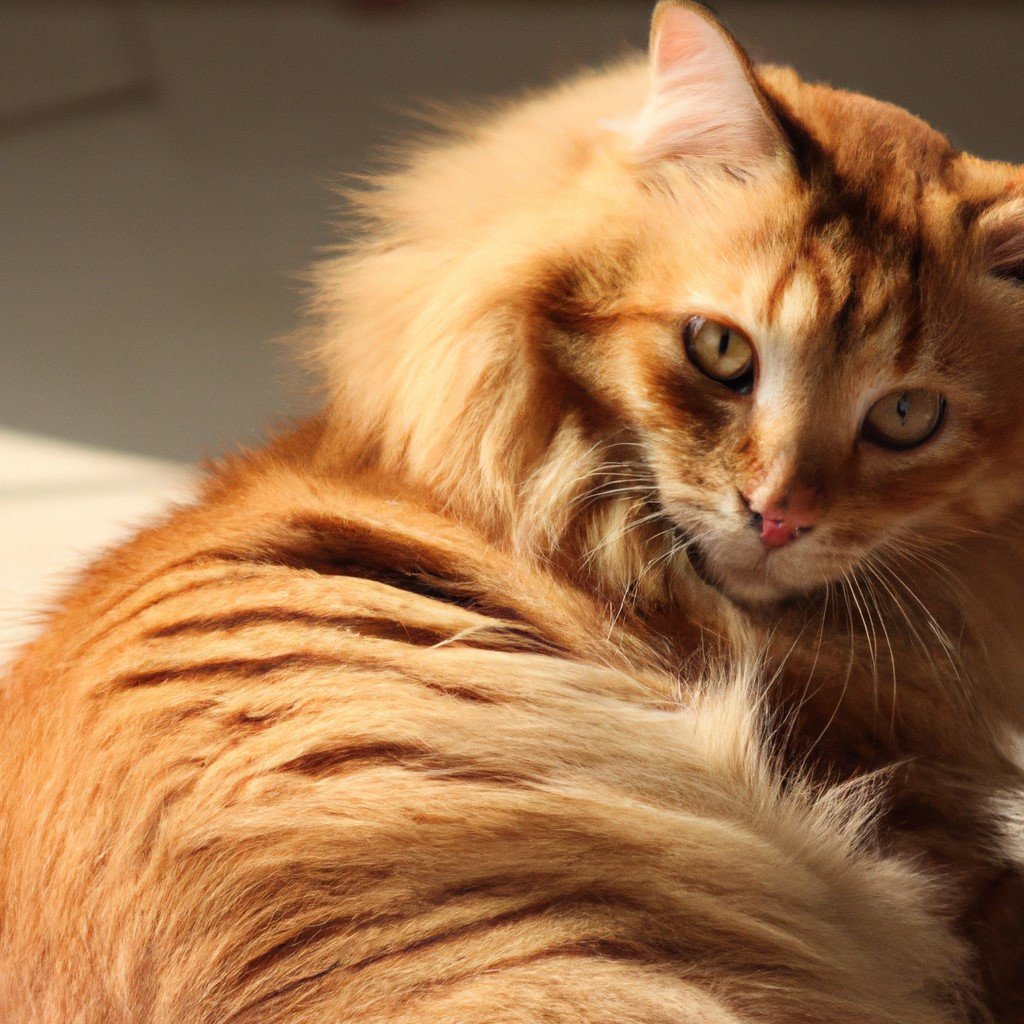
Maine Coon cats are known for their distinct physical characteristics, which set them apart from other breeds. Their impressive size, luxurious coat, and expressive tails all contribute to their unique charm. Understanding these traits is key to providing the best care for these gentle giants.
Maine Coons are among the largest domesticated cat breeds, with males often weighing between 13 to 18 pounds, and some even reaching up to 25 pounds. Their size is not just for show; it plays a role in their overall care.
It’s a common misconception that larger cats are more difficult to manage. Despite their size, Maine Coons are known for their easygoing and affectionate nature, making them surprisingly easy to handle. Their gentle demeanor and social behavior often make them easier to care for than smaller, more temperamental breeds.
The Maine Coon’s coat is one of its most striking features, consisting of a dense undercoat covered by longer guard hairs that are water-repellent. This double-layered coat is an adaptation to cold climates but also requires regular maintenance.
Practical grooming tips that are often overlooked include paying attention to the areas behind the ears, under the legs, and around the tail, where mats are more likely to develop. Keeping your cat’s coat in good condition not only enhances their appearance but also helps prevent skin issues.
Maine Coons are also known for their long, bushy tails, which are not just decorative but serve important functions.
Understanding your cat’s tail signals can improve your communication with them. For example:
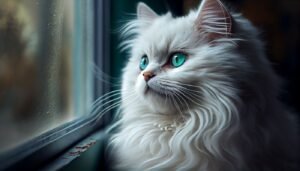
Maine Coon cats are celebrated not just for their impressive size and physical traits but also for their unique personalities. Known as “gentle giants,” they exhibit a blend of affection, playfulness, and independence that makes them wonderful companions.
Maine Coons are well known for their friendly and affectionate personalities. Despite their large size, they are affectionately called “gentle giants” because of their warm and loving nature.
This loving nature also means that Maine Coons are highly adaptable to different household environments. Whether you live in a bustling family home or a quieter setting, they thrive on companionship and enjoy being part of the daily routine.
Maine Coons have a playful side that makes them fun to be around. They are curious and intelligent, often engaging in interactive play that stimulates their minds.
To balance their need for interaction and solitude:
Understanding this balance helps in creating a harmonious environment where your Maine Coon can thrive.
Maine Coons are quite vocal, but their sounds go beyond the usual meows you hear from other cats. They have a range of sounds that they use to communicate with their owners.
To understand your Maine Coon’s vocalizations:
Responding: Responding to your cat when they “talk” to you can help build a stronger bond between you. Respond to their vocalizations with gentle words or petting, showing that you understand and value their communication.
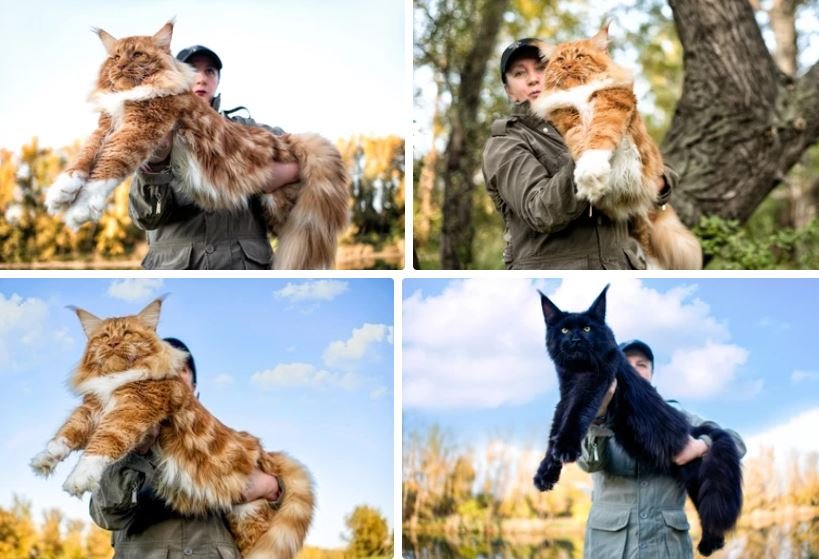
Maine Coon cats are generally healthy and robust, but like any breed, they have specific health considerations that owners should be aware of. Understanding these health issues and their nutritional needs is essential for ensuring a long, happy life for your Maine Coon.
Maine Coons are prone to specific health issues that are more common in this breed. Awareness and early detection are key to managing these issues effectively.
Early Detection Tips:
Given their large size and active nature, Maine Coons have specific nutritional needs that must be met to maintain their health and energy levels.
Diet Tips:
Living with a Maine Coon cat can be a rewarding experience, but it also requires some adjustments to ensure your home and lifestyle accommodate their unique needs. Here’s how to create a comfortable environment, build a strong bond through socialization and training, and even take your Maine Coon on the road for travel adventures.
Maine Coons are large, active cats that need plenty of space to roam and play. Setting up your living space to suit their needs is essential for their happiness and well-being.
These modifications help create a stimulating and safe environment that caters to your Maine Coon’s needs, making them feel more at home.
Maine Coons are social cats that thrive on interaction with their human companions. Effective socialization and training are essential for building a positive and harmonious relationship.
Whether you’re going on a short getaway or a longer journey, preparing for travel with a Maine Coon is essential to ensure a smooth and stress-free experience.
Owning a Maine Coon cat provides a one-of-a-kind and fulfilling experience, full of both delights and challenges. These gentle giants bring immense affection and playful energy into a home, making them beloved companions. Their friendly nature and impressive size make them stand out, but their care requirements and health considerations are important to be aware of. Embracing their large size, playful independence, and vocal communication will enhance your bond with them.
For cat lovers seeking a loyal and engaging pet, a Maine Coon is an excellent choice. Their loving demeanor and adaptable personality make them well-suited to various living situations, from bustling family homes to quieter environments. If you’re prepared for the commitment and care they require, a Maine Coon can become a cherished member of your family, offering years of joy and companionship.
Read this essential article.
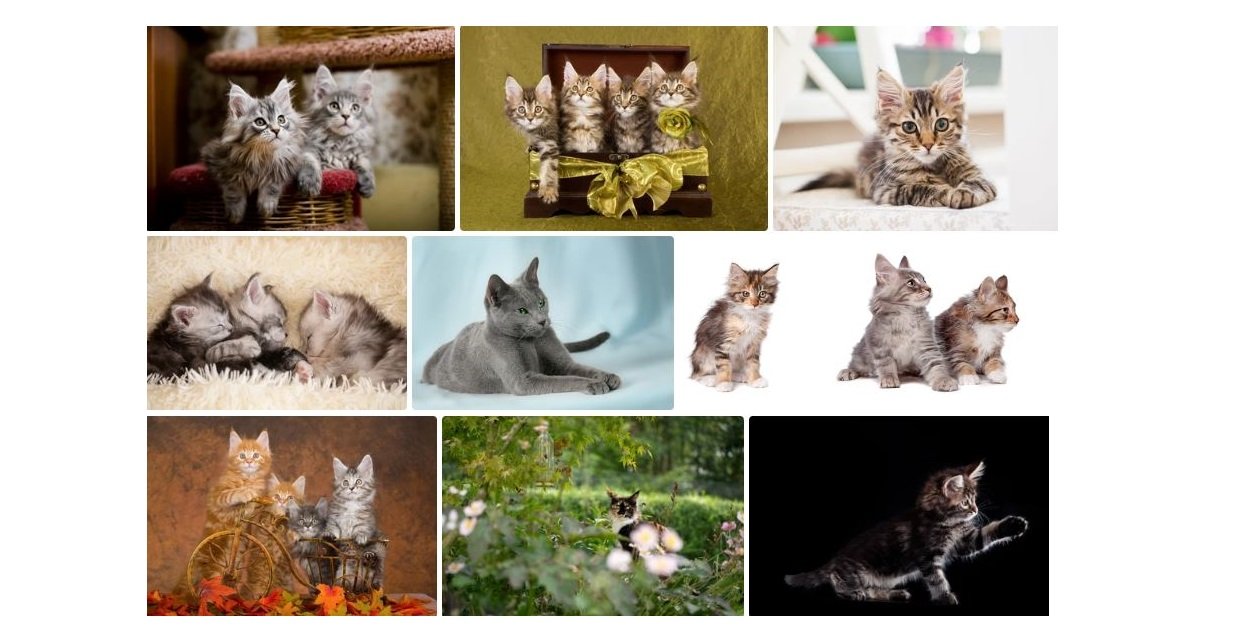
FAQ's
Maine Coon cats are known for their impressive size, with males often reaching up to 25 pounds. They have a distinctive, long fur coat that requires regular grooming. Maine Coons are famous for their friendly and sociable personalities, which make them wonderful companions.
Maine Coons are often called “gentle giants” due to their impressive size and surprisingly sweet personalities. These large cats are renowned for their calm and affectionate nature, making them beloved companions for people of all ages.
The size of Maine Coons means they need more space and exercise compared to smaller cats. Their long, dense fur needs regular grooming to keep it from getting matted and tangled. Brushing several times a week and occasional baths help keep their fur in good condition. Regular check-ups are also important to monitor their health, especially for conditions like hypertrophic cardiomyopathy (HCM) which are more common in the breed.
Before getting a Maine Coon, consider their size and the space you have available. They thrive in homes where they have room to roam and climb. Their grooming needs require time and effort, so be prepared for regular brushing.
Keep your Maine Coon healthy with a balanced diet, regular exercise, and routine vet checks. Provide plenty of playtime and climbing opportunities. Maintain their luxurious coat with regular grooming.
Yes, Maine Coons are known for their sociable nature, which makes them great with children and other pets. Their patient and gentle temperament allows them to get along well with kids and integrate smoothly into multi-pet households.
Traveling with a Maine Coon requires some preparation. Use a strong, well-ventilated carrier to keep your cat safe and comfortable. Acclimate your cat to the carrier and car before longer trips. Bring familiar items like their favorite blanket or toys to reduce stress. Ensure frequent breaks during long travels to allow your Maine Coon to stretch and hydrate.